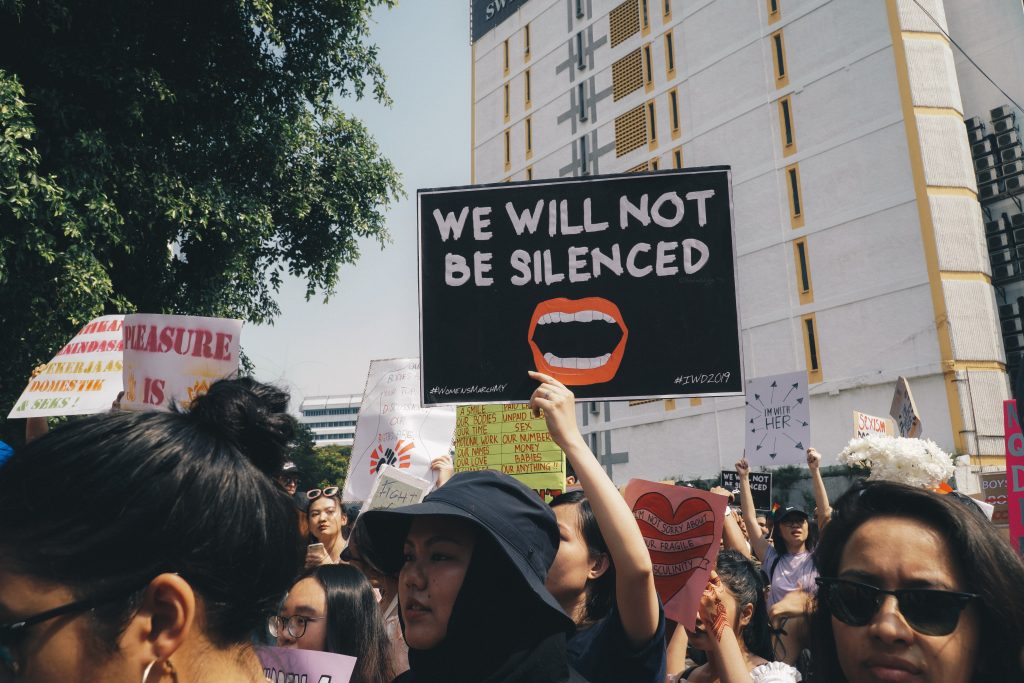
American Public Square at Jewell offers some unique opportunities for the William Jewell College community, but its goal of restoring civility to politics is deeply flawed. This is not to say that we need to make vulgarity the norm, nor am I saying that American Public Square isn’t doing good work. There is certainly value to providing forums where issues can be discussed rationally and where, to quote Dr. Alan Holiman, “we can talk about this, and not about you.” These sorts of forums can be very useful for education on pertinent issues and help people gain a better understanding of politics.
The problem is that the goal of promoting civility in relation to politics is in and of itself woefully misguided. Civility politics fundamentally benefit the powerful, at the expense of the powerless, it emphasizes style and tone, over content and actions, and it overlooks the conflictual nature of politics.
Civility politics assumes that through respectful and rational dialogue we can establish consensus and negotiate a compromise. Agreeing to disagree is the highest form of politics. It is no surprise that support for civility politics is so profound in academia and the media. But politics is not simply discourse where we can agree to disagree. Politics is about power, and it is about people’s lives. Fundamentally a struggle between irreconcilable forces. Hostility is as much a feature of politics as stress is a feature of college.
Ambassador Allan Katz, founder of American Public Square and a distinguished professor at Jewell, has said that “politics doesn’t have to be a zero-sum game,” but two contradictory groups cannot both win, and for the people impacted by political decisions, especially those without power, politics is, more often than not, a zero-sum game. Political decisions have very real, material impacts and often can mean life or death. Cuts to Medicaid will lead to preventable deaths. Gentrification will force poor people out of their homes.
There is inherent violence to politics that civility politics chooses to ignore because civility is rooted in norms that reflect the existing order and ideological hegemony. Police violence, systemic poverty, wars for hegemony, union-busting and gentrification are normalized because they are done by or for the benefit of the existing order and the ruling class.
Resisting injustice and challenging the existing order requires norms to be violated, and thus the ruling class has always used civility to delegitimize and marginalize social justice movements. Protests, strikes, direct action, civil disobedience and other confrontational methods of extra-parliamentary politics are chastised by pundits and politicians for being uncivil, however, they are often the only effective means of combating systemic violence.
The terms of civility would have people who are marginalized, disadvantaged and oppressed accept the conditions imposed on them by the ruling class. A call for civility is, in effect, a call for the status quo. Dr. Martin Luther King Jr., who was criticized in his time for being uncivil, famously said, “freedom is never voluntarily given by the oppressor; it must be demanded by the oppressed.” This will often require people to be disruptive, confrontation, and even disrespectful.
Civility is also used to mask the ruthlessness of policies enacted by the powerful. A key element of civility is a presumption of good faith, people are entitled to the assumption that they are acting sincerely and with the purest intentions. Racist policies from the war on drugs, to gentrification, to voter suppression, are often justified in a way that is seen as more “civil”, emphasizing ideas like law and order or economic development, and does not appeal to overt racism. Perhaps this was most poignantly illustrated by Republican strategist Lee Atwater in 1981, who stated:
“You start out in 1954 by saying, ‘N*****, n*****, n*****.’ By 1968 you can’t say ‘n*****’—that hurts you, backfires. So you say stuff like, uh, forced busing, states’ rights, and all that stuff, and you’re getting so abstract. Now, you’re talking about cutting taxes, and all these things you’re talking about are totally economic things and a byproduct of them is, blacks get hurt worse than whites.… ‘We want to cut this,” is much more abstract than even the busing thing, uh, and a hell of a lot more abstract than ‘N*****, n*****.’”
This emphasis on style and tone over content and action allows the powerful to escape scrutiny and for harmful policies, rooted in bad faith, to be enacted. Those who challenge such policies on the grounds that they are racist are stifled and countered by denials which appeal to the assumption of good faith.
This is not to say the answer is vulgarity, as previously stated it is often useful to engage in civil dialogue with people we disagree with and this can even be necessary. But civility politics is deeply problematic.
Civility for its own sake is fundamentally at odds with the inherently hostile nature of politics, benefits the powerful at the expense of the powerless and values style over substance, allowing ruthlessness to escape scrutiny.
